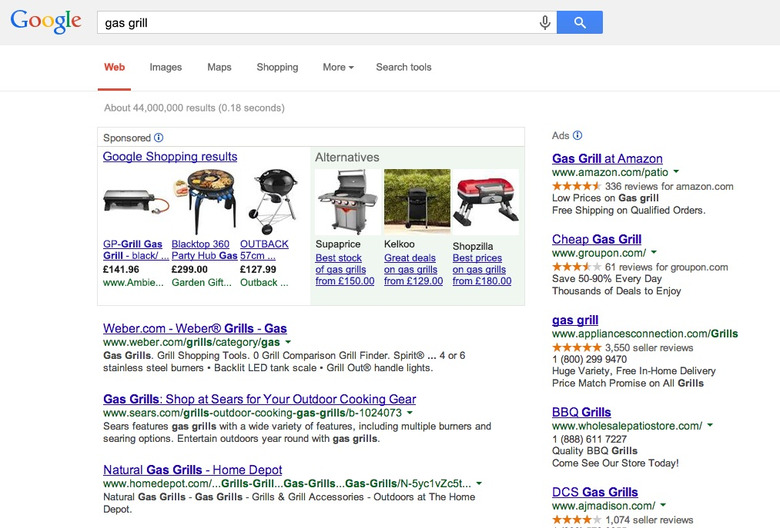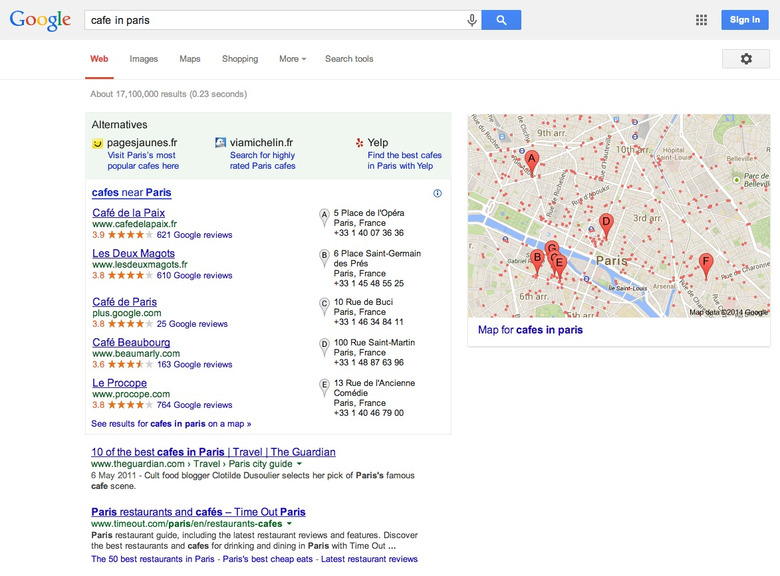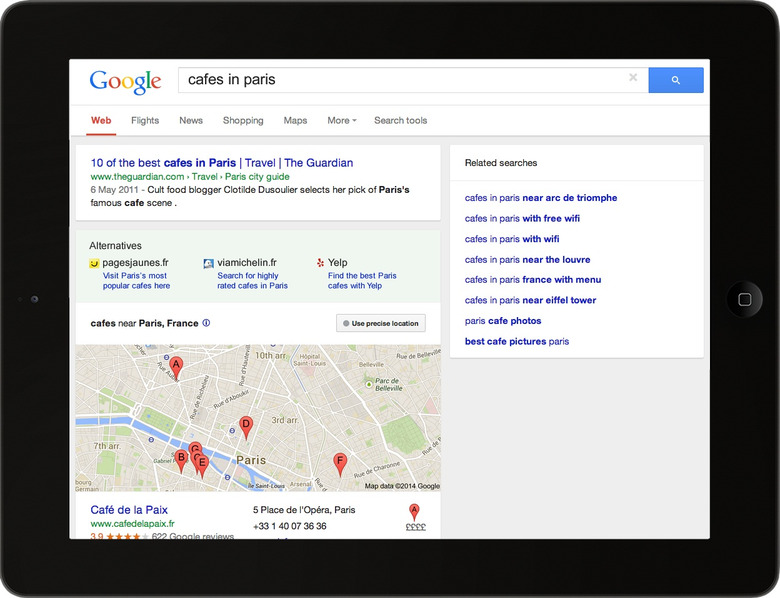Google's EU deal has rivals livid: Here's what escaping a $5bn fine looks like
Google's tentatively-agreed antitrust settlement may have pacified the European Union but the search giant's rivals are still spitting mad, billing the concessions as "worse than doing nothing." Years of search result sparring and the threat of a potentially $5bn antitrust fine dangling over its metaphorical head forced Google to crank up its offers to the EU in order to escape penalties for dominating in the European market; however, the consortium including Microsoft, Trip Advisor, Nokia, and others still isn't happy.
Rather than paring back Google's power in the segment, FairSearch Europe argues, in fact the agreement would "lock in discrimination." Rivals hoping to chip away at the 95-percent dominance in share across the European Union, it claims, will now have to spend even more to compete.
FairSearch's members are also upset that they haven't been consulted this time around, unlike with the two previous batches of concessions Google offered.
"These proposed commitments have not been subjected to any form of consultation," FairSearch Europe legal counsel Thomas Vinje said today, "although it was thanks to market testing of industry participants that the Commission had condemned two previous packages of proposed commitments as fatally flawed."

Causing most ire is how Google will effectively auction off placement alongside its sponsored results, such as through Google Shopping. To satisfy the EU, Google will offer free placement next to specialized search results which it doesn't charge for – randomly picking those included from a pool – but rivals will have to bid to get included in search results Google charges vendors for.
"In instances where Google does not charge for inclusion in its specialised search service, rivals will not be charged to participate in the rival links. The three displayed rivals will be chosen from a pool of eligible specialised search competitors using Google's normal web search algorithm.
In instances where Google charges for inclusion in its specialised search service, the three rivals will be chosen from a pool of eligible specialised search competitors based on a dedicated auction mechanism." EUROPA
That, FairSearch says, basically means companies will have to "hand the vast majority of their profits to Google" if they want to take part, effectively making the search engine's discrimination sanctioned by the EU.

Mock-ups of what the new search results pages might look like have also been shared, showing rival links boxed out and listed as "Alternatives" to Google's results. Google is promising to make clear that its own services are promoted, in addition to giving rival firms more control over how their results show up.

